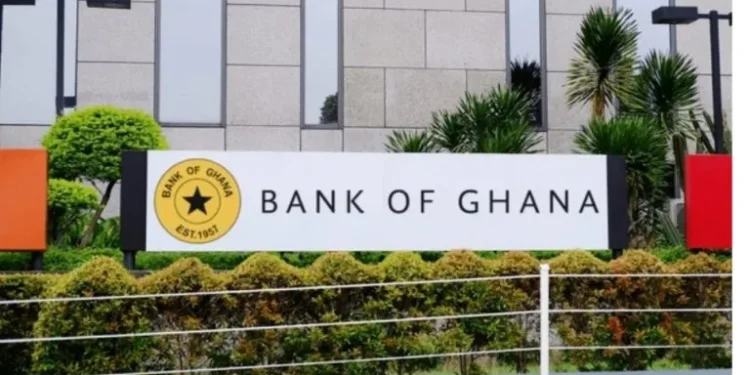BoG to Cap Cross-Currency Card Transaction Fees at 2%, Mandates Full Disclosure of Charges
The Bank of Ghana (BoG) has announced plans to impose a 2% cap on Optional Issuer Fees (OIFs) on cross-currency card transactions, as part of sweeping reforms to enhance transparency, protect consumers, and uphold the integrity of the country’s payment systems.
Governor of the Central Bank, Dr Johnson Asiama, made the announcement on Tuesday, June 3, 2025, during a Post-Monetary Policy Committee (MPC) meeting with Chief Executive Officers of commercial banks held at the BoG Headquarters in Accra.
According to Dr Asiama, the Central Bank has observed a growing trend in the imposition of OIFs on cross-currency transactions by some banks. While acknowledging that such fees may, in principle, reflect legitimate cost recovery mechanisms, he expressed concern over the lack of transparency in their application.

“In principle, we recognize that these fees may reflect real costs. However, opaque pricing and limited disclosure have already begun to erode consumer trust and the integrity of payment systems,” Dr Asiama stated.
To address the issue, the BoG will soon issue a directive that:
Caps OIFs on cross-currency card transactions at 2%; and
Requires mandatory disclosure of all applicable OIFs to customers prior to the completion of transactions.
Dr Asiama also raised alarm over what he described as broader unethical pricing practices in the sector. He cited reports of some banks applying interest charges on inactive credit accounts—an action which, in some instances, results in accrued interest surpassing the original loan principal.
“Let me be clear: such practices are unacceptable. They distort customer outcomes, misrepresent the true profitability of lending portfolios, and violate the principles of fair treatment and transparency,” he cautioned.
He urged banks to urgently review their pricing models and ensure customer charges reflect both ethical standards and commercially defensible policies.
The BoG’s latest regulatory pronouncements come on the back of a broader effort by the Central Bank to reform interest charging practices, control Non-Performing Loans (NPLs), and reinforce the soundness of Ghana’s financial system.








